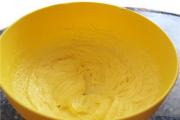How to remove the smell from frozen fish. How to remove the smell of mud from fish. How to remove fish smell from the refrigerator
Sea or river fish is a healthy and tasty product, it has one drawback - an unpleasant stench that can eat into the surfaces of objects and hands. A small carcass is capable of "aromatizing" the room, even if it is just lying in the open air. Due to the fact that it is not easy to get rid of the smell of fish, many housewives limit themselves and their household members to the use of such a useful product.
There are several ways to remove unpleasant odors from boiled, fried, dried, or smoked fish. At home, you can reduce the intensity of the stench with the help of household chemicals and folk remedies prepared with your own hands from scrap materials.
The ways
During cooking, not only dishes are soaked in an unpleasant stench, but also cutting boards, knives, kitchen towels, and other products, if the fish dish was next to them. Often, the stench does not go away even after washing towels, thoroughly washing hands and surfaces in the kitchen. For example, after using a cutting board, it may give off a stench that resembles rotten fish that cannot be removed with regular detergent.

You can eliminate the smell of fish in an apartment or in a house by using one of the available methods. In the arsenal of many housewives there is a huge number of components that, with skillful use, help to avoid the problem. If you forget about prevention, then you can use one of several methods suggested below.
From the dishes
In order to remove the characteristic stench from a frying pan, saucepan or in the oven, after heat treatment of the carcass, you can use available adsorbents. In this, ordinary table salt will become the main assistant. Its main property is the absorption of various kinds of aromas along with moisture.
Salt
After frying, the pan is washed under cold running water using a large amount of detergent. Then, such a volume of salt is poured into a dry dish so that it lies in an even layer of one centimeter on the bottom of the pan. In this form, the dishes are put on fire, the salt powder is heated, and then the stove is turned off and the pan is left to cool completely.
Mustard
Another effective way is to use mustard. It is better if it is not a spicy paste familiar to everyone, but a dry powder. A small amount of powder is dissolved in warm water to prepare gruel, and then pots and other kitchen utensils are processed, including dinner plates, meat grinders, a multicooker bowl and other utensils.
The main advantage of mustard powder is complete environmental friendliness and safety. The mustard will not only absorb the unpleasant aromas generated during cooking, but also disinfect the surface.

You can use raw onions or potatoes, vegetable oil or beer. With these tools, they simply wipe the contaminated surface and rinse under plenty of water.
From hands
The stench can enter not only kitchen utensils, but also the skin of the hands of the person who cooked the product. It is simply inconvenient to use rubber or latex gloves, due to the peculiarities of processing the fish carcass. Therefore, after cooking, you urgently have to figure out how to remove the smell of fish from your hands.
It is worth noting that chemistry for eliminating trouble must be not only effective, but also safe. And even more so in no case should it damage the skin, leaving burns. Therefore, it is better to use "edible" improvised means in the form of lemon, 9% table vinegar, light beer.
Lemon
You need to wipe your hands with a slice of lemon, and then wait until they dry themselves. After that, hands are washed under cold water. By the way, so that the carcass itself does not smell so much, you can sprinkle it with lemon juice ten minutes before frying or during cooking. In this case, the cooking process will be felt only within the kitchen space, and not throughout the apartment.

Vinegar is one of the most effective options for controlling fish stench (smoked, salted, or raw) from the hands. A tablespoon is diluted in a liter of boiled water. Hands and refrigerator shelves where the product was lying are washed in this solution.
Please note that in an effort to remove the aroma of fish from your hands, do not wash them under hot water. The fact is that the high temperature only "imprints" substances into the skin.
From clothes and kitchen towels
Not only towels are saturated with aromas in the kitchen, but also curtains, aprons and other fabrics in the rooms. Sometimes it is almost impossible to remove the stench even after several washes, it is unrealistic to interrupt it, you will have to look for options.
If a long time has passed and the stench has not been removed, then additional steps may be required. Before washing, all affected items are soaked in a large concentration of laundry soap. The bar is pre-grated and used as the main tool for combating stench on clothes.
All soaked items must be left in this position for at least one hour. In addition to laundry soap, we recommend using table vinegar or citrus juice, such as lemon, to discourage fishy amber. However, in some cases, these substances are capable of bleaching fabrics, and therefore they can only be added to white things. Heavily soiled items are soaked in dish detergent. Their main advantage is the formation of a large amount of foam.
Instead of the usual flavored powder, baking soda is used during the wash cycle - a glass of soda is added to the powder compartment.
With fur coats, sheepskin coats, leather goods, it is better to immediately contact a dry cleaner, self-removal may result in a loss of the presentation of an expensive wardrobe.

From furniture and carpets
The situation is worse if the carpet and upholstered furniture are saturated with the smell of mud and stale seafood. Unlike clothes, washing the latter with high quality does not work due to the fact that the upholstery from the sofa dries for too long and is difficult to remove, let alone large carpets.
Even expensive purchased chemicals do not always help in solving this problem. The same "Vanish" does not always justify its cost, leaving the owners with foul-smelling stains.
Therefore, for couches, sofas, as well as other furniture, you can use table vinegar, soda, starch and even ordinary black tea.
Instructions
The vinegar is diluted in water, and a large piece of cloth is wiped with the resulting solution. This could be a sheet or an old blanket. After that, cover the sofa with a wet cloth and lightly press it against the upholstery. The acid seeps into the upper layers of the upholstery, removing dirt and fish stink.
A simpler method is to use loose leaf tea. Dry leaves are laid out in an even layer over the entire surface, which smelled of a fish dish, and then removed.
From the premises
You can remove the unpleasant smell of rotten fish from the room by performing several manipulations. First, you need to open all the windows and wet clean the surfaces in the kitchen. While cleaning, you can add a few drops of essential oil and vinegar to the bucket.
After wet cleaning, pour a small amount of water into the kettle and mix it with vinegar. After boiling, the kitchen will be filled with a specific aroma, which will soon disappear without a trace. A more radical method of solving the problem is to incandesce the coffee beans in a dry frying pan.

Prophylaxis
There are several secrets that can successfully minimize the smell not only in the room, but also in the refrigerator (freezer). To do this, fresh or frozen seafood does not need to be stored open, but only wrapped in foil. The packaging should be as tight as possible.
In cooking, the first and main rule is to put potatoes or onions cut into small pieces into the heated vegetable oil prepared for frying fish. If these vegetables are not at hand, it is permissible to use lemon juice or at least citrus zest. The juice is poured into the oil in small portions, and then the container is closed with a lid for a few seconds.
If fish soup is planned to be prepared from the fish, then a little cow's milk is added to the broth. The liquid neutralizes the stench, which then does not spread throughout the apartment. Everyone knows that when cooking dishes, the smell spreads not only to the whole apartment, but also through the exhaust ducts to the entrance and to the neighbors.

So that the baking sheet is not soaked with fish, it is better to purchase a separate deck for these dishes. Thus, the stench will not spread beyond this object. After cutting the carcass, all knives, cutting board and other items are thoroughly washed under water with the addition of detergent.
Cleaning the kitchen doesn't take long, but if you like fish dishes and cook them on a regular basis, wiping work surfaces and mopping floors using household chemicals is imperative to maintain a comfortable indoor atmosphere.
Conclusion
Knowing how to quickly get rid of the smell of fish in the kitchen, you can not limit yourself to the use of this delicious product. Removing stench can, of course, be a problem. But using the above tips helps to solve it at home without much effort.
Video
Similar materials


All people smell differently, but fishy aromas annoy most of us. Therefore, any housewife needs to know how to get rid of the smell of fish in an apartment, what measures should be taken to reduce the intensity of the smell when storing or preparing fish, as well as removing it from the refrigerator, dishes and soaked towels, curtains. After all, it is completely inappropriate to refuse such a valuable product, which is necessary for the full filling of the diet, because of the not very pleasant smell.
Many of us love fish dishes. Moreover, many people like fish in various forms - fried, smoked, boiled, and some even eat raw. This element of our food is extremely useful, it contains a lot of vitamins and specific fatty acids useful for the body.
Alas, this product also has a somewhat unpleasant feature - a rather persistent odor, which can be very difficult to get rid of. And if the cooking process is long enough, then nothing helps, not only curtains or tablecloths begin to exude an aroma, sometimes even wallpaper is saturated with a smell.
Any fish has a very specific smell, some varieties smell more pronounced, others not very strong, but it is almost impossible to find a product without this feature.

Any fish has a very specific smell.
The smell of this product will always be present. Sometimes less, sometimes more pronounced, but our sense of smell will always feel it. Interestingly, most of us recognize these scents as a real stench.
If you are going to pamper your family with fish dishes, the hostess should know that “aromatic” problems will accompany the process at all stages - from cooking to consuming the finished dish. The main problems are:
- a specific, sometimes quite unpleasant smell remains on all utensils used for cooking - knives, cutting board, bowls, frying pan;
- it is impossible to store a poorly packaged product in the refrigerator, other products and walls are instantly saturated with a smell that does not disappear even during the cooking process;
- kitchen towels that have been in contact with even a small carp are extremely difficult to wash, and the smell can be removed only when very strong products are used;
- some ready-made dishes sometimes have a rather strong "aroma" that not everyone likes. For example, there is often a pronounced taste in the ear, which is very problematic to remove.
In addition, the process of frying fish is usually accompanied by a strong odor, which, with certain types of food, can be very unpleasant and rich. Even the most powerful and modern hood is not able to cope with this. The air in the kitchen becomes unpleasant, the whole room and objects in it are soaked, and not only the kitchen room, the rest of the rooms are also exposed to this "aroma".
Therefore, at all stages of working with fish products, certain measures will have to be taken. A number of the simplest and most common remedies will help in this: vinegar, ordinary salt, lemon or orange peel. And, of course, you need to start with storage. The product should be packaged as tightly as possible.
Advice! It is best to store fish in the refrigerator in tightly sealed containers or carefully wrapped in plastic wrap.
The best helper is salt
Surprisingly, but the best assistant in the fight against fish (and not only) odors is ordinary salt, which is able to adsorb a variety of aromas. It's also a good idea to have vinegar, lemon, or other citrus fruits in your kitchen.
The best assistant in the fight against fish (and not only) odors is common salt
First of all, in a smelling room (usually a kitchen), it is recommended to heat a small amount of salt in a frying pan; after a very short time, you will notice a significant decrease in the unpleasant "aroma". After that, you can use the zest of any citrus fruits, which must also be heated in a small frying pan, or simply held over the burner for a little while.
In addition, the fishy "aromas" of vinegar or lemon juice, which must be diluted with water and boiled for about five minutes, are well removed. After that, the kitchen will have to be thoroughly ventilated.
We remove fish tracks from dishes, cutting boards, towels and other things
For the preparation and cutting of raw fish, it is best to select a separate board, while it is recommended to choose it from a material other than wood. Wooden boards (as well as old and not very high quality ones) have the ability to absorb the liquid released during the cutting process, and it will be almost impossible to completely remove this liquid later.
This is pretty good advice, adhering to which you will most likely save other foods from fishy aromas.
Another remedy to combat this scourge is mustard.
The vinegar and salt already mentioned above will help in eliminating odors from kitchen utensils. In the kitchen, it is imperative to have paper towels available to thoroughly wipe the pan used to prepare the dish, after which it can be washed. Fill the washed and dried frying pan with a small amount of salt, put it on the stove, heat it for about 5 minutes - the aroma is gone.
Another remedy to combat this scourge is mustard, familiar to all of us, which is present, probably, in any kitchen. Mustard (powder or ready-made seasoning) must be dissolved in warm water. The resulting solution is used to process the dishes, and if necessary, the refrigerator inside. By the way, in the fight against fish "aromas" this method is one of the most widespread.
- Surfaces (not only dishes) are wiped with an onion or potato, cut into halves.
- The problem is eliminated by wiping with a cloth soaked in sunflower oil. After that, the dishes must be washed out with any detergent.
- The fishy spirit is perfectly interrupted by a much sharper beer. Therefore, the utensils can be treated with beer, which is then very easy to rinse off.
- To wash towels, aprons or other clothes soiled with fish, things are soaked in warm water with the addition of vinegar. In this case, 2 tbsp is used. l. vinegar in 5 liters of water. After a couple of hours, the items must be thoroughly rinsed and washed as usual.
As you can see, experienced housewives do not get lost and know that the smell of fish in the apartment can be easily defeated.
Important! The main thing is to stock up on the ingredients necessary for cleaning (vinegar, beer, salt or others) before any preparation of fish dishes and wash the dishes without putting it off until tomorrow. The same goes for washing stinky towels, aprons, or other clothing.
Raw fish has a specific smell. It is felt even when the dish has already been cooked. There is not a single species of sea or river fish that does not give off a rather unpleasant aroma for some people.
Fish is a healthy and nutritious product that is essential for our balanced diet. It is inappropriate to refuse its use only because it emits a sharp aroma at the cooking stage.
What to do with the kitchen if you really want to taste fried fish or aromatic fish soup?
Eliminating the fish "spirit" in the kitchen
The smell will always be. It can be pronounced or practically absent, but wonderful metamorphoses will occur with our sense of smell and we will always have a real stench.
What problems do we face when we are going to cook fish:
- A specific smell is transmitted to all utensils required during cooking - a cutting board, knives, pans, bowls.
- The proximity of fish in the refrigerator with other products is impossible - the smell is instantly transmitted to them and to all the inner walls of the refrigerator.
- It is very difficult to wash kitchen towels that someone from the household has used after contact with carp or perch.
- Not everyone likes too "aromatic" taste of fish soup. How to remove a pronounced taste in the ear? For some, this is also a big problem.

It is impossible to hide the fact of fish frying from neighbors. Having even the most powerful hood, you will not be able to avoid the spread of "aromas" throughout the entire staircase. Everything there will ventilate over time, but losses are inevitable in the apartment itself - wallpaper, carpets, curtains, clothes will be saturated.
It is necessary to take measures immediately after cooking to reduce the spread of the fishy smell throughout the apartment. Salt, vinegar, lemon, lemon or orange peel will help us.
Salt is a faithful helper, it remarkably pulls off a variety of odors:
- We heat it in a frying pan and leave it to stand on the stove until it cools.
- Half the battle is done, then citrus zest is applied, which also needs to be heated in a small frying pan or simply held over the burner. But not everyone has a zest at hand.
- How to remove the smell of fish? Pour water into a small saucepan, add vinegar or lemon juice. We boil the prepared water, and then thoroughly ventilate the kitchen.
How to eliminate the smell of fish from a cutting board, dishes
For cutting fish, you need to have a separate board, but so that it is not wooden. A low-quality board will absorb juices, which will be almost impossible to remove.
Great "experts" in home economics advise that you need to buy certain types of dishes in which you will marinate seafood, and then cook. Good advice, it will save other products from unpleasant odors.
The same salt and vinegar will help to eliminate the smell of fish from dishes. You should have paper towels in your kitchen. With the help of them, we carefully wipe the pan in which the dish was prepared, and then wash it. We put the washed, dried frying pan on gas, pour salt into it and heat it up - the trouble disappears.
Dry mustard is excellent at removing odors. If there is no powder, the one already sold as a seasoning will do. Dissolve it with warm water. We process all the dishes with a mustard solution, as well as the refrigerator, if necessary. This is one of the best ways to eliminate fish odor.

It is always advisable to wipe the dishes, no matter how well they are, after the fish with vinegar or lemon juice.
Experienced housewives have in their arsenal many ways to remove the smell of herring, fresh or dried fish, seafood, they:
- Wipe the surfaces with potatoes or onions, cut in half.
- A little sunflower oil is dripped onto a clean rag and the problem is removed. After that, the dishes are washed out.
- They take regular beer and handle all the utensils with it. The fact is that beer has a much sharper spirit, and it interrupts the fishy one. The good thing about the method is that the beer is easily washed off without any problems.
How to wash clothes, aprons, towels with a fish smell?
Things should be soaked for a couple of hours in warm water to which table vinegar is added. It is taken approximately at the rate of 4-5 liters of water - two tablespoons. Then rinse clothes and towels thoroughly and wash as usual.
How to improve the taste of fish soup that you cook from river fish?
To keep it from smelling of pungent mud, add a whole head (medium size) of onions and whole carrots to the pan. Roots and greens of parsley, celery are wonderful products, without which a good ear will not work. They will solve the problem and improve the taste of the dish.
The specific smell of fish, as you can see, can be overcome. Whenever you are planning a fish meal on the family menu, be sure to purchase enough vinegar, lemons, or beer to quickly eliminate fish odors after cooking.
HOW TO REMOVE FISH ODORHow to get rid of the fish smell in the broth?
Add some milk to the water in which you cook the fish and the smell will disappear.
How to get rid of fish smell when frying?
To eliminate the strong odor when frying fish, place one potato, peeled and cut into slices, in vegetable oil.
Alternatively, put an onion cut in half in a frying pan with fried fish.
One more tip. Add a drop of lemon juice to the oil.

How to remove fishy smell when frying?
Next tip. About 20 minutes before frying, squeeze the juice of half a lemon onto the fish.
How to remove the smell of fish in the kitchen after frying?
You can get rid of the unpleasant smell of fish in the kitchen by boiling a small amount of water with the addition of vinegar on the stove in an open container. Ventilate the room in a few minutes. For the same purpose, you can put an orange or lemon peel on a heated burner, or sprinkle some salt on a hot stove. Put a frying pan with coffee grounds on the fire and the coffee aroma will quickly dispel any unpleasant odors.
You can also boil water with cloves or cinnamon.
How to remove fishy smell from dishes?
The dishes in which the fish were cooked retains a specific smell for a long time, in order to get rid of it, you need to wipe the pot or frying pan with sleeping tea.
The smell of fish will disappear if you rub it with dry mustard before washing the dishes.
Also, the smell of fish can be eliminated by wiping the dishes with heated salt and rinsing in cold water.
If the smell of fish remains on the cutlery and plates, then you need to wash them in cold soapy water, then grease with vegetable oil and wipe thoroughly with a towel.
If necessary, rinse again with soapy water and running water.
How to quickly remove smoked fish smell on hands?
It is useless to go wash your hands with soap and water. The smell of smoked fish (mackerel, herring, saury) will still remain on your fingers. It is especially not recommended to wash your hands in this case with hot water or warm water. The smell will only intensify.
So how can you wash your hands? Beer will come to the rescue in the fight for the disappearance of the smell of smoked meat. Yes, yes - beer. Moreover, both light and dark are suitable, you can take unfiltered beer. If you ate fish in nature, just pour a little beer on your fingers over the grass and rub it in your palms. Then just rinse your hands with clean water.
If you are at home, take a cotton swab or piece of gauze and moisten it with beer. Then rub your fingers. And then wash your hands with soap and cold water. If the smell of smoked fish hasn't gone away the first time, wipe your fingers with beer one more time, the smell will surely disappear.
How to remove fishy smell on hands?
Wash your hands in cold salted water and rub with lemon juice and rinse with cold water
How to get rid of fishy smell on clothes?
Soak clothes for forty minutes before washing in a solution of 2 tablespoons of vinegar in 2 liters of warm water. Then wash your clothes with laundry soap, and the darker the soap, the better, as it contains more alkali.
Also, a concentrated solution of sodium chloride removes the smell of fish from clothes well.
If the clothes are white, then it is necessary to boil the linen for half an hour with laundry soap (rub on a coarse grater).
Rinse out several times. Add a spoonful of vinegar for the last rinse.
If you wash in winter, try to "freeze" clean clothes on the balcony.
Fish products undoubtedly benefit our body, because they are rich in calcium, omega 3, 6-acids and other important microelements. So, the fish fillet is a storehouse of easily digestible protein, which is involved in the construction and renewal of cells, and sea or river inhabitants are able to fully provide us with B vitamins, which are necessary for the normal functioning of the nervous system and memory. You can talk endlessly about the benefits of this product, but many housewives of the world are worried about another question: "How to remove the smell of fish after cooking?", Because there are people in whom this nuance causes a gag reflex. However, not everyone knows that fish, only caught from their habitat, does not have a pronounced specific smell, therefore, the usual washing of an absolutely fresh product with running water can finally rid it of natural "ferromone".
So why can our beloved fish smell so bad? The fact is that the bacteria on the surface of the carcass produce organic nitrogen compounds. These molecules, in an unusual environment for them, begin to rapidly disintegrate and produce trimethylamine. From this, the smell of fish takes on an intense "hue". When the organic film on the skin dies altogether, trimethylamine will reach its peak, and now it will be much more difficult to get rid of the fish "spirit".
We fry fish without "consequences" Such a dish with its simplicity and naturalness has won the hearts of the most fastidious gourmets for a long time. It would seem that there is nothing complicated: I washed the fish, gutted it, processed it in flour breading, fried it and enjoyed its excellent taste. Only the traces of such culinary manipulations are much more difficult to sweep up and take longer than the entire cooking process takes.
Therefore, consider the question of how to remove the smell of fried fish.
All housewives and cooks need to adopt the following tips: Before cooking fish, you need to turn on the hood or open a window. To completely remove the smell of fried fish, you should rid the brazier, stove and all the space around them within a radius of one meter of sunflower oil that has settled. At the end of such work, ventilate the room again and use an air freshener.
How to remove fish smell from clothes?
When you fish, especially when frying it, make sure that there are no unnecessary items of clothing in the kitchen space. This is because a pungent smell can quickly be absorbed into the fibers of a thing, after which it will be much more difficult to get rid of it. If such a situation occurs, within a short time, put the wash at the maximum temperature that the clothes will accept. In the event of a negative effect, soak the foul-smelling laundry in a vinegar-water solution, and then start the washing machine again. Memorize these methods so that you always know how to remove the smell after frying fish.
How to remove fish smell from hands?
At first glance, this is a rather difficult task, but there is still a way out, and not even one. Those products that will help get rid of this fish "nuisance" are in the kitchen arsenal of any home. These are: lemon, vinegar, powdered citric acid, beer drink, citrus essential oil.
- First solution: 5 ml. dilute vinegar in 500 ml. clean water and after thoroughly washing your hands, rinse your palms in this solution.
- The second solution: After the bath procedures, rub the citrus zest in your hands, and the result will not be long in coming - the smell of fish will dissolve into a pleasant lemon or lime aroma.
- Third solution: dilute 3-4 drops of ether in 100 ml. water diluted with milk. Rinse your previously washed hands with this compound. Please note that the resulting liquid must be cold, otherwise the desired result will lead to disappointment.
- The fourth solution: rinse your previously washed hands with light or dark beer. After such a bath, a pleasant smell of cereals will be imprinted on the palms, and not a fishy, specific "spirit".
How to remove the smell of river fish before cooking?
As food statistics show, fish caught from the river has a more specific smell than sea fish, due to the presence of "echoes" of mud and algae in it, which grow abundantly in flowing water bodies. That is why such a product is much cheaper, and the low price only fuels the desire to buy a couple of kilograms of river fish on the market.
Experienced cooks and some housewives know several ways to remove the smell of fish, because the quality of the cooked food and its taste depend on how noticeable it is.
Diluted milk in water is one of the most effective methods. To complete it, you need to take 200 ml of the first and second ingredients. Next, cut the fish, cut into pieces of moderate size and salt well, lay in layers in a bowl. Fill the fish with milk solution and refrigerate for 40 minutes. After this time, take out the container, take out the pieces of river product, rinse and lower it in the same container with liquid. After another 30 minutes, the fish is ready for further heat treatment.
Another equally popular method involves the use of vinegar. Actions begin with washing and cutting the fish. After that, the product is cut into pieces and salted. The resulting portions are removed to the refrigerator so that the salt has time to absorb the trimethylamine. After 30 minutes, you need to get the fish and pour it with vinegar diluted with water. The proportions are taken unequal. So, one tablespoon with a head is enough for one liter of water. Such a move is quite capable of removing all extraneous and natural fish odors.
Before preparing fish, many cooks carry out its primary processing. This action will remove the unpleasant odor and rid the product of the presence of microbes in it. It is necessary to cut the fish and cut it into pieces. All pieces are filled with brine made from salt and water. Ingredients are taken in proportions of 100 grams of the first product and 1.5 liters of the second. In order for the volatile substances to evaporate, the fish needs to stand in such a salty syrup for about half an hour in the refrigerator. After that, the liquid is drained, the fish is washed and subjected to further processing.
The cold pickling method will also do an excellent job with the mission. To perform the following steps, you need to rinse and gut the carcass, then dividing it into parts. Further, everything is much easier: add salt to the resulting pieces, sprinkle with black pepper and chopped bay leaves, after placing them in a glass jar. After an hour, the liquid is drained, and the odorless fish is ready. The method of processing the product in question using lemon juice is much more effective than the option with salt and vinegar. Only for this you need to spend money on lemons. So that the fish does not smell, it is generously watered with the juice of several citruses. The container is placed in the refrigerator for two hours.
The most common techniques for isolating fish from unpleasant odors are discussed. The above methods will tell you how to erase traces of nitrogen decomposition from the surface of dishes, a knife and a cutting board.
How to remove fish smell from the refrigerator?
Such a well-known problem as the smell from the refrigerator worries even the most meticulous housewives in matters of cleanliness. If somewhere in a remote corner of this household appliance a small, inconspicuous piece of food is lying around, then as it deteriorates, an unpleasant smell can spread even to a freshly prepared dish. What can we say about fish, if such a product is considered incompatible in the vicinity of certain products?
 Some women, having bought fish at the market, do not rush to cook it right away, but put it in the refrigerator until better times. At this moment, they cannot even imagine what will become of the aura of the refrigerator after such a guest? If you have such a nuisance, you can try to follow the steps:
Some women, having bought fish at the market, do not rush to cook it right away, but put it in the refrigerator until better times. At this moment, they cannot even imagine what will become of the aura of the refrigerator after such a guest? If you have such a nuisance, you can try to follow the steps:
- Defrost the refrigerator.
- In a plastic bowl, dissolve water with some of the salt and soda and wash the cavity of the refrigerator with this product, paying special attention to the separate corners and the freezer.
- In the third step, the refrigeration device should be reprocessed using the wet cleaning method with detergent or detergent.
- Remove soap residues from the surface of all compartments, thus re-washing them.
- After the above steps, dry the refrigerator and ventilate for several hours.
This way of getting rid of the fish smell can be a little confusing. But the result is worth it. By doing everything right and diligently, you will forget about the recent presence of seafood in your refrigerator.
How to remove the sweet smell from fish?
Many may have faced such a situation: they bought a fish, brought it home and found in it the presence of an extraneous putrid odor. The fish can go bad for two reasons - either it lies on the counter for longer than the prescribed period, or it was simply stored incorrectly. Of course, such a product is not only unnecessary to use, but also dangerous. But if it is still a pity to throw away spoiled fish, it can be "rendered harmless".
- Rub the scented fish with salt and rinse in cold water.
- If there is still a sticky film on the food, remove it with water.
- Gut and cut the carcass into portions.
- The next step is to blanch the fish pieces in boiling water for 1-2 minutes.
- After these steps, you can marinate the product in vinegar or fry.
Nevertheless, if the seafood is rotten and after being sent to the trash can left traces unpleasant for the sense of smell, not everyone knows how to remove the smell of rotten fish. In fact, the devil is not so terrible as he is painted. A rotten fishy smell can be neutralized from any surface using recipes:
- Water with dissolved soap shavings is a less effective method, but it has a place to be.
- Water with the addition of ammonia or ordinary alcohol - after processing "stinking" objects, they endow them with their own specific smell.
- A solution with vinegar is one of the most used methods in everyday life. eliminates not only fish, but also other kinds of odors.
- Water with dissolved citric acid after processing rotten fish sites also effectively fights the problem.
- An irreplaceable thing - soda, as a universal "soldier" in the kitchen, will help to defeat the "rotten" nuisance.
How to remove the smell of fish in the apartment after cooking?
To prevent the unpleasant smell after frying fish from spoiling your appetite, you need to open a window while cooking and provide the room with natural air exchange. This action will prevent odors on clothing and other textiles. It will not be superfluous if, in addition to natural, you turn on artificial ventilation, the representative of which is the hood.
Nevertheless, if traces of cooking fish remain, coffee beans or lemon peel will help to cope with them. Just put the food on the table and it will gradually absorb the excess odors. Boiling acetic acid diluted with water will also help. You can make a regular pickle, which is used in the process of sealing tomatoes and cucumbers. The effect of the method is achieved by boiling vinegar with spices and vaporizing it into the atmosphere of the room, killing volatile, bad-smelling substances.
Fish in all its forms is undoubtedly a favorite product, but many cannot stand the smell of it, especially when it is spoiled. In order not to deal with the problem in the future, you need to prevent it in the present. Therefore, before you bring fish into your home, take care to prevent the appearance of its specific smell on your hands, dishes, clothes, in your apartment and in the refrigerator. Today, special sorbents in the form of tablets or powder for the adsorption of all kinds of odors are no longer a novelty. Their use is popular and no less effective. Natural odor absorbers can be found in every kitchen. These are: the already mentioned coffee beans and lemon peel, rice, boiled potatoes, as well as an apple cut in half. With the listed products, you can clean the air in the apartment and in the refrigerator, at the expense of chemical analogues.
chistoclub.com
If the fish is smelly
Many people like fish-based dishes. It is nutritious and healthy, it contains a lot of vitamins and fatty acids. However, fish has one unpleasant characteristic - a characteristic pungent smell that can remain in the refrigerator, on a cutting board, table and utensils. However, there are several different ways to prevent and completely eliminate fishy odor.
Stuffing in a pie / pies, stretch it or pancakes. IMHO if a little odor, it's okay. Anchovy won, for example, is a delicacy. Although it has a very specific dukhan)))))
I am without regret (although lying .. with regret to some) throw away all suspicious products.
05.04.2010, 15:34
If the product is suspicious, I'll throw it away. although it's a pity. If only a faint suspicion of what is stale, but not spoiled, you can eat it with heat treatment. For example, wash it, hold it a little in running water so that the excess salt is gone and the soup is cooked.
Dry ambassador
With dry salting, brine is formed as the fish is salted. With dry salting, the use of oppression is mandatory. The weight of the oppression is selected on the basis that it must push through the entire mass of the fish and squeeze the air out of it. When salting fifteen large podleschik with a total weight of 15 kg in a stainless steel tank, the weight of the oppression lying on the stand should be at least 10 kg. When the air temperature is over 20 ° C, the fish must be gutted.
Dry salting is used only when there is a place equipped for salting and the air temperature at the salting place does not exceed 20 ° C. In addition to sprinkling salt on each new row of gutted fish, in specimens of more than 0.8–1 kg, salt is rubbed by hand against the scales. In large fish, a portion of salt is placed under each operculum and into the ripped belly. Direct sunlight is unacceptable in the place of salting.
Food stainless steel containers, as well as enameled dishes can be used both with dry and wet salting. If fish is salted in a leaky container (in field conditions this is permissible), a clean canvas rag or burlap is placed on the bottom of the basket or wooden box.
Prepared fish are placed on it in dense rows (head to tail) belly up and sprinkled with salt. The total salt consumption is 2.5 kg per 10 kg of fish. On top of the fish they put a lid (stand) knocked out of wood and on it - heavy oppression. It, as already mentioned, is necessary to remove air cavities and make fish meat more dense. The resulting juice flows out of the gap between the basket bars or the box boards. In metal containers, it can drain through the top or through special side holes, or it can remain inside, it all depends on the salt concentration. For 5-10 days, the fish is salted. But if more than 10-15 kg of wide-backed fatty fish (blue bream, bream, crucian carp, tench, silver carp) are salted in a stainless tank under oppression weighing 5–7 kg at the same time, then part of the brine must be drained. If the juice secreted by the fish does not drain, then in order to maintain the required concentration on the 3-4th day, it is necessary to add V / b-UW weight from the initial amount of salt.
An ambassador is considered ideal, in which the fish is in a cool place (refrigerator, cellar, glacier).
Fish Ambassador by defrosting in a refrigerator (refrigerator)
The most reliable, simple and affordable way of salting fish at home is to freeze completely gutted fish or fillet pieces in a freezer at a temperature of -10-12 ° C for 3-4 days or at a temperature of -6-8 ° C for 7– 8 days. In the future, the fish or fillet pieces are sprinkled with salt at the rate of 250 g of salt per 1 kg of fish.
After rubbing with salt, the fish is thawed in the refrigerator at a temperature of 0-5 ° C. Defrosting, the fish very quickly absorbs salt and is ready to eat in salted form for 3-4 days (salmon family). Oppression with such a salting is not necessary, and when salting thin pieces of salmon, halibut, catfish, mackerel, taimen, sturgeon is unacceptable, since it affects the taste of the product.
Large dry ambassador
Meat. At the time of its ancient Karelians ate little. Basically, it was meat of wild animals (elk, deer, wild boar, game birds). Later, when the Karelians mastered cattle breeding and agriculture, there was also meat from livestock (beef, sometimes low-fat lamb, less often pork). Mostly meat was eaten during haymaking and in winter. To keep it for a long time, it, like fish, was salted and dried. Often they took jerky meat with them on a long journey.
Turnip is the main root vegetable of the Karelian cuisine. Many different dishes were prepared from it: soups, casseroles, porridge, stewed fruit, made kvass, dried. Potatoes replaced it only at the beginning of the last century. Other vegetables used by the Karelians: radish, onion, cabbage, rutabagas, carrots in small quantities. Gardening in Karelia used to be rather poorly developed.
Karelians loved (and love) milk, as well as products from it. Cottage cheese is especially popular. During the spring-summer period, many Karelians prepared cottage cheese, and from it for the winter they made homemade cheese (muigiemaido), which they ate with boiled potatoes and sour cream. In addition, the curd was dried. Was on the Karelian tables and yogurt. It was often served mixed with unleavened milk. Goat milk became widespread among the Karelians only in the 1930s. It is also worth remembering colostrum - the milk of the first milkings. In some regions of Karelia, it was baked in pots, resulting in a product similar to cheese (yysto). The Karelians did not eat reindeer milk, although they were engaged in reindeer husbandry (especially in the north). The Karelians also whipped butter. It was mainly put into porridge, later into potatoes. They hardly ate butter with bread.
As for the bread itself, in Karelia it was baked from rye, barley or oat flour. Often there was not enough flour, so the practice of various additives to flour appeared and took root: moss, barley straw, pine sapwood. In addition to simple bread, pies were baked. In addition to the already mentioned fishmongers, wickets (sipainiekku) were also baked - pies filled with millet and barley groats, oatmeal, mashed potatoes. Local housewives used a proverb: "A gate requires eight." It meant that for the manufacture of such pies, as a rule, eight components are needed: flour, water, salt, milk, yogurt, sour cream, butter and filling.
This is the most frozen dish made in Iceland. The shark is caught, gutted and placed in barrels of gravel. After two months, the pieces are taken out and hung on metal hooks to hang a little more. During this time, a dried crust forms on the fish - this is the most delicious. The crust is cut off and eaten. In addition to the fact that the Greenland shark is pickled and dried, it also has one more "aromatic" feature - the living creatures still do not have a urinary system, so urea, uric acid and other "charms" are excreted through the skin. That is, eating a Greenland shark immediately after catching is not only not tasty, but also dangerous - you can get poisoned. Apparently, in the process of fermentation, the meat loses its toxic properties.
But even such fish deteriorate to the point where no amount of "recovery" processes help. Then the seller cuts the fish, places it in a foam pallet and packs it in polyethylene.
- Fish slices are made from expired or spoiled fish.
2.5 tbsp. l. flour
5 cups fish or vegetable stock
1 medium carrot
2 cups leeks, chopped
a handful of peeled fresh shrimp
12 mussels
200 g catfish (or other fatty fish)
Fish, preferably with dense flesh (hake, ice, pike perch, horse mackerel), in frozen form, peel from the skin (this is easier), remove the fillets. In fish with delicate pulp (mackerel), it is better to remove the fillet from the skin, having previously cleaned it from the scales. Cut the fillet into small pieces, about 40-50 grams each. Cut onions into large half rings, finely garlic. Add black pepper, salt and vinegar to taste, a little finely broken bay leaf, unrefined sunflower oil. Stir and refrigerate overnight.
FROZEN FISH AMBASSADOR (LIGHT) 1 kg peeled fish or fillets, 50 g (2 tablespoons) salt, 1/4 teaspoon sugar.
Frozen sea fish with thick fillets and tender meat can be lightly salted. Salted fish, cut into thin slices, can be consumed *** the next day for making sandwiches or as a cold snack. For salting, you can take more oily fish. Salted argentina with delicate white flesh and tuna with pink flesh, large crucians (especially besugo), halibut, bluefish, butterfish, sardines, etc. are especially tasty.
FROZEN HERRING AMBASSADOR 1 kg of fish for the marinade: 1 l of water, 5 onions, 3-4 tablespoons of salt, pepper (to taste), bay leaf.
Boil all this for 5 minutes and cool. Then add 2 tablespoons of vinegar, 1 glass of milk, 2-3 tablespoons of sunflower oil to the cold marinade. Peel the fish, put in a saucepan and pour over the marinade. Put in the cold. After six hours, the herring is ready.
AMBASSADOR HERALDFish; for brine: 1 l of water, 100 g of salt, 2 tbsp. l. sugar, peppercorns, laurel. leaf, cloves, caraway seeds, dill to taste.
Boil everything and cool slightly. Disassemble the raw herring, i.e. remove the fillet from the bones and cut into transverse strips, put it in a jar (you can shake the jar a little so that all the pieces float in the brine), pour in the brine and keep in the refrigerator for 2-3 days. You can add vinegar or replace some of the brine water with dry wine. And in the vinegar version, the herring can be shifted with onion rings.
FAST AMBASSADOR
Salt the water to such an extent that the raw potato does not sink in it. Cut herring, peeled from entrails, into pieces and dip in brine. Serve in half an hour.
DRY AMBASSADOR
That's all, we have shared with you the secrets of getting rid of the pungent smell of fish, now you can safely enjoy its excellent taste!















